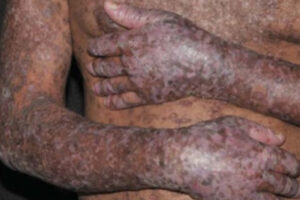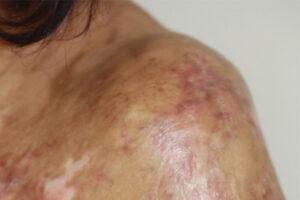Oncology
Chronic Graft-versus-Host Disease
Tailoring Care to Organ-Specific Manifestations of Chronic Graft-versus-Host Disease
Overview
The clinical manifestations of chronic graft-versus-host disease (cGVHD) may be restricted to a single organ or site or they may be widespread, with a profound impact on quality of life. Evidence-based consensus opinion supports organ-directed topical treatments in mild cases of cGVHD involving 1 or 2 organs without functional impairment, with aggressive local therapies potentially needed to manage severe morbidities.
Expert Commentary
Corey Cutler,, MD, MPH, FRCPC
|
|
“The ancillary and supportive care measures are extremely important to patients and should not be overlooked in the organ-specific approach to cGVHD."
The 2014 National Institutes of Health recommendations by Carpenter et al, published in 2015, are an excellent resource for organ-specific care in cGVHD. Recommendations are organized by organ or relevant systems and are graded according to the strength and quality of supporting evidence. This working group really took a comprehensive approach to the development of these guidelines.
In general, when dealing with individual organs such as the skin or the mucosa, you have to divide your therapeutic approach between what you are doing systemically and what you are doing topically or more focally. The topical or local therapies can be divided into 2 broad categories: those that are truly locally immunosuppressive and those that are supportive care–type interventions. The ancillary and supportive care measures are extremely important to patients and should not be overlooked in the organ-specific approach to cGVHD.
Take the eyes, for example. When we talk about treating the eyes, we often refer to topical ophthalmic preparations of cyclosporine, which have anti-inflammatory properties and reduce eye inflammation that can lead to dryness. On the other hand, treatments such as punctal plugs or preservative-free artificial tears might be considered more symptomatic or supportive. They help keep the eyes wet, which leads to healing and reduced patient symptoms. Supportive treatments are no less important. If you have a patient with severe dry eye, you should not only treat the inflammation that caused the dry eye but also the dry eye itself.
For the mouth, the idea is the same. We use a lot of treatments such as topical steroid rinses or oral steroid gels to treat the inflammatory component of large ulcers. However, we also have to keep the mouth wet to prevent accelerated caries, and we use topical antifungal agents to prevent Candida superinfection.
References
Carpenter PA, Kitko CL, Elad S, et al. National Institutes of Health Consensus Development Project on Criteria for Clinical Trials in Chronic Graft-versus-Host Disease: V. The 2014 Ancillary Therapy and Supportive Care Working Group report. Biol Blood Marrow Transplant. 2015;21(7):1167-1187. doi:10.1016/j.bbmt.2015.03.024
Jacobsohn DA, Kurland BF, Pidala J, et al. Correlation between NIH composite skin score, patient-reported skin score, and outcome: results from the Chronic GVHD Consortium. Blood. 2012;120(13):2545-2552. doi:10.1182/blood-2012-04-424135
Jagasia MH, Greinix HT, Arora M, et al. National Institutes of Health Consensus Development Project on Criteria for Clinical Trials in Chronic Graft-versus-Host Disease: I. The 2014 Diagnosis and Staging Working Group report. Biol Blood Marrow Transplant. 2015;21(3):389-401.e1. doi:10.1016/j.bbmt.2014.12.001
Jehangir N, Bever G, Mahmood SMJ, Moshirfar M. Comprehensive review of the literature on existing punctal plugs for the management of dry eye disease. J Ophthalmol. 2016;2016:9312340. doi:10.1155/2016/9312340
Sarantopoulos S, Cardones AR, Sullivan KM. How I treat refractory chronic graft-versus-host disease. Blood. 2019;133(11):1191-1200. doi:10.1182/blood-2018-04-785899
Wolff D, Gerbitz A, Ayuk F, et al. Consensus conference on clinical practice in chronic graft-versus-host disease (GVHD): first-line and topical treatment of chronic GVHD. Biol Blood Marrow Transplant. 2010;16(12):1611-1628. doi:10.1016/j.bbmt.2010.06.015











